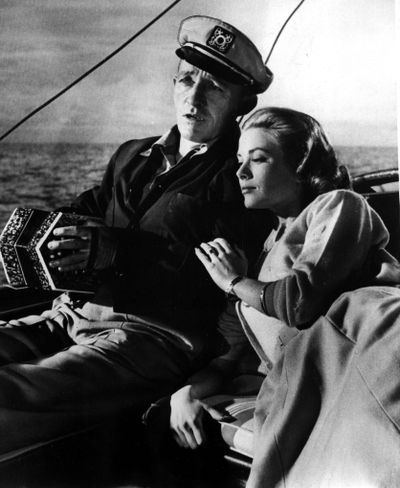Dreaming of a Bing Christmas
Annual holiday film festival pays tribute to Crosby’s legacy

There are a number of reasons Bing Crosby is inextricably linked to the holiday season, but the biggest one is the Irving Berlin song “White Christmas” that Crosby made famous.
It was the biggest hit of Crosby’s career – and widely acknowledged as the biggest selling single of all time – and he sang it in three different films: “Holiday Inn” (1942), “Blue Skies” (1946) and, of course, “White Christmas” (1954).
This weekend, the Bing Crosby Theater will pay tribute to its namesake with a Bing Crosby Holiday Film Festival, a two-day event that will feature four of Crosby’s most famous movies. In its eighth year, the festival has expanded to two days and features a musical performance from Crosby’s nephew Howard and displays of historic memorabilia and photos, as well as a new bus tour that takes attendees to locations from Crosby’s life in Spokane.
Here are the titles you can see in their full glory on the big screen:
• “Going My Way” (1944): This simple yet endearing musical drama features the first appearance of Crosby’s most iconic character, Fr. Chuck O’Malley, a young Catholic priest hired to oversee a New York City parish while straightening out a gang of troubled youths through the power of song. The film was a huge success upon its initial release and eventually took home seven Academy Awards, including best picture, director and actor for Crosby (it was his first and only Oscar, though he was nominated again the following year, reprising the O’Malley role in this film’s sequel, “The Bells of St. Mary’s”). Plays Saturday at 1:30 p.m.
• “High Society” (1956): Not only does this colorful MGM musical have tremendous star power – Crosby is cast alongside Frank Sinatra and Grace Kelly, and Louis Armstrong shows up in a cameo – it’s also anchored by the music of Cole Porter. Based on Philip Barry’s play “The Philadelphia Story” (previously made into a classic 1940 farce with Cary Grant, Katharine Hepburn and James Stewart), “High Society” was panned by critics when it was first released, but it holds up today as a fascinating time capsule: It’s a rush to see Crosby and Sinatra performing together at the height of their popularity, and Kelly is luminous in her final film role. Plays Sunday at 3 p.m.
• “Holiday Inn” (1942): Although Crosby had starred in a number of films before “Holiday Inn,” this is one of his most beloved and was arguably the one that made him a screen legend. The movie stars Crosby as a song-and-dance man who retires from the business after his partner (Fred Astaire) steals away his girlfriend, opening a New England inn where he performs frequently for his guests. In the midst of a number of lavish musical numbers, the film’s most famous moment is its most intimate: Crosby sings “White Christmas” (for the first time on film) alone in a parlor with love interest Marjorie Reynolds. Plays Sunday at 12:30 p.m.
• “White Christmas” (1954): This was originally intended as a Crosby-Astaire reunion, a sort of reworking of “Holiday Inn” (this time in glorious Technicolor), although Danny Kaye eventually assumed the Astaire role. He and Crosby play GIs-turned-vaudevillians who follow a female singing duo to a ski lodge in Vermont that’s suffering from a dry winter. Directed by Michael Curtiz (“Casablanca”) and co-starring Rosemary Clooney and Vera-Ellen, “White Christmas” was the highest-grossing movie of 1954 and further cemented Crosby as one of the biggest marquee names of his era. Plays Saturday at 11 a.m. and Sunday at 6 p.m.